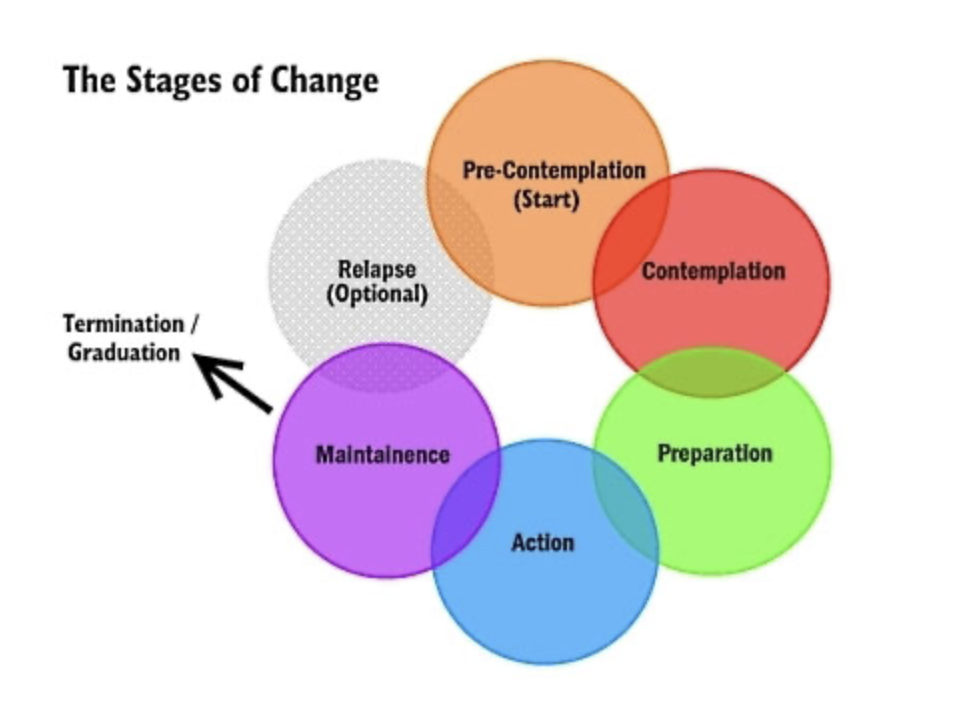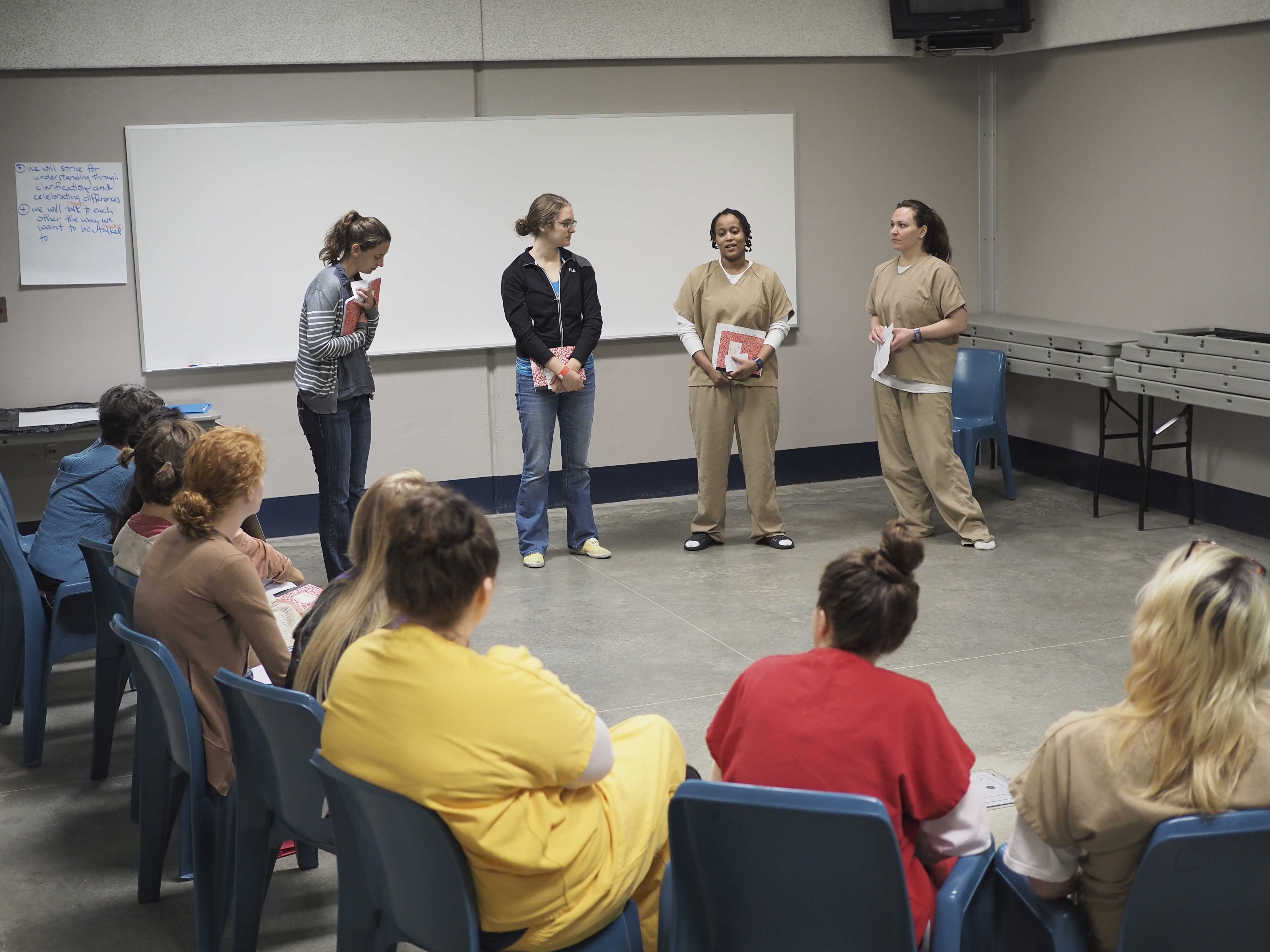The Stages of Change
1) PRECONTEMPLATION STAGE
“It isn’t that we cannot see the solution. It’s that we cannot see the problem.”
Precontemplators usually show up in therapy because of pressures from others… spouses, employers, parents, and courts… Resist change. When their problem comes up, they change the topic of conversation. They place responsibility for their problems on factors such as genetic makeup, addition, family, society, destiny, the police, etc. They feel the situation is HOPELESS.
2) CONTEMPLATION STAGE
“I want to stop feeling so stuck!”
Contemplators acknowledge that they have a problem and begin to think about solving it. Contemplators struggle to understand their problems, to see its causes, and wonder about possible solutions. Many contemplators have indefinite plans to take action within the next few months.
“You know your destination, and even how to get there, but you’re not ready to go.”
It is not uncommon for contemplators to tell themselves that some day they are going to change. When contemplators transition to the preparation stage of change, their thinking is clearly marked by two changes. First, they begin to think more about the future than the past. The end of contemplation stage is a time of ANTICIPATION, ACTIVITY, ANXIETY, and EXCITEMENT.
3) PREPARATION STAGE
Most people in the preparation stage are planning to take action and are making the final adjustments before they begin to change their behavior. Have not yet resolved their AMBIVALENCE. Still need a little convincing.
4) ACTION STAGE
Stage where people overtly modify their behavior and their surroundings. Make the move for which they have been preparing. Requires the greatest commitment of time and energy. CHANGE IS MORE VISIBLE TO OTHERS.
5) MAINTENANCE STAGE
Change never ends with action. Without a strong commitment to maintenance, there will surely be relapse, usually to precontemplation or contemplation stage.
Most successful self-changers go through the stages three or four times before they make it through the cycle of change without at least one slip. Most will return to the contemplation stage of change. Slips give us the opportunity to learn.
Our Principles
-
Self-Management - People can manage their own behaviour.
-
Mutual Aid - People learn best from each other.
-
Choice - People choose their own goals, skills and tools.
-
Person Centred - People with lived experience are central in guiding what we do.
-
Evidence Led - All our programs are based on scientific evidence and we encourage their on-going evaluation.
History of
SMART Recovery
SMART Recovery was established in 1994 in the USA to meet the increasing demand of health professionals and their patients for a secular and science-based alternative to the widespread 12-Step addiction recovery program.
Such was its popularity that SMART Recovery grew from 42 group meetings at the beginning to more than 2000 in North America alone today and now proliferating worldwide in 23 countries and counting.
Get Started Right Now!
If you’re feeling the negative effects of addiction, why wait to make changes? Get started with SMART Recovery by watching our instructional videos and slides, and find how quickly you can Discover the Power of Choice!
I want to get started now!
Important Decisions for Court-Mandated Attendance
First Amendment Court Cases
A compilation of court cases related to mandated support-group attendance and First Amendment issues regarding religious freedom.